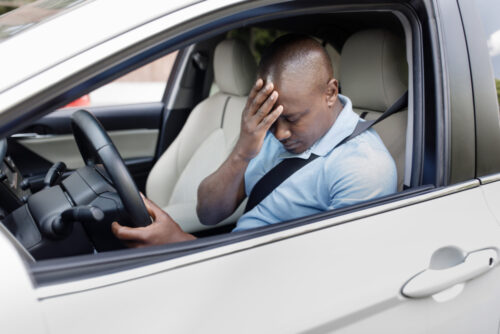
The law gives police some leeway when it comes to reducing incidents of drunk driving. Police are allowed to ask any driver to take a breathalyzer test if the officer believes there is probable cause to request it, though the rules around requesting you to take a field sobriety test or a blood test are different. Sobriety checkpoints are legal throughout the country, and this certainly includes Tennessee. In light of this, what should you do and what shouldn’t you do at a sobriety checkpoint? Keep reading to find out. If you’ve had an incident at a sobriety checkpoint before reading this blog, don’t hesitate to contact a Memphis DUI defense lawyer right away.
Do Pay Attention to Sobriety Checkpoint Announcements
Tennessee Highway Patrol is bound by law to create a publicly accessible list of sobriety checkpoints, including the place and the time. These should be announced on local news media, via traffic apps, and on the Tennessee Department of Safety & Homeland Security website.
You are fully within your legal rights to avoid a sobriety checkpoint once hearing of it. And if you never heard of a sobriety checkpoint because the police did not offer adequate notice of it, that checkpoint may be illegal and charges issued by that checkpoint may be dismissed.
Do Drive Carefully as You Approach the Checkpoint
Although you are not required to drive through a sobriety checkpoint, you cannot use dangerous driving maneuvers to avoid one. You surely can’t use illegal driving maneuvers like going the wrong way on a one-way street to avoid a sobriety checkpoint. You shouldn’t make a sudden U-turn or turn onto a different street just before the checkpoint, as doing so can be perceived as probable cause by the officers to check for signs of intoxication.
Finally, you should make every effort not to approach a sobriety checkpoint while intoxicated, whether on alcohol or any other substance. While it is true that there are approved roadside tests for alcohol intoxication but not for intoxication by other drugs, police can still point to other visible symptoms of intoxication, such as bloodshot eyes or difficulty speaking.
Don’t Be Afraid to Assert Your Rights at a Sobriety Checkpoint
Without probable cause or a warrant to do so, police officers can ask to search your car, not require it. Remember that if officers at a sobriety checkpoint want to inspect your car. It is your legal right to say “no,” if you don’t agree with the search.
Similarly, the officer can only require you to take a chemical test after having probable cause to suspect you were driving under the influence of drugs or alcohol. If there is no probable cause, you can refuse to do chemical tests (like breath, blood, and urine) as well as field sobriety tests. Keep in mind that if the officer does have probable cause, you may end up losing your license for having refused to take the test.
Don’t Forget Your Charge Can Be Dismissed
If you were charged at a sobriety checkpoint, that may still be dismissed. Charges from an illegal checkpoint are not valid, and if your car was searched illegally, then the police also violated your Constitutional rights. Finally, mistaken results from any test used (chemical, field, or non-standard) would also invalidate a charge.
